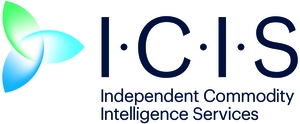ICIS Tschach Solutions Analysts Forecast €31 EUA Price in 2020 Following 24 Feb MSR Vote
LONDON, February 24, 2015 /PRNewswire/ --
Today, the environment committee (ENVI) of the European Parliament adopted the Market Stability Reserve (MSR) - a legislation which aims to reform the European Emissions Trading System (EU ETS). The MSR is designed to help tackle the current supply and demand imbalance and make the system more resilient to future demand shocks.
The following key MSR elements were agreed upon by the majority within ENVI:
- Start date: MSR established in 2018 and operational by 31 December 2018 - allowances should be transferred to the reserve "without undue delay"
- Back loading allowances: 900m EUAs which were supposed to come back to market in 2019 and 2020 to be transferred to the reserve
- Unallocated allowances: include unallocated new entrance reserve, derogation, and left-over regular free allocation - according to ICIS Tschach Solutions estimates, this amounts to roughly 670m
- Industry innovation fund: 300m allowances from unallocated allowances available from operational date of the MSR up to 2025
- Carbon leakage: European Commission to review carbon leakage provisions six-months after MSR legislation is adopted
- Thresholds of MSR: As per European Commission proposal - 833m upper threshold, 400m lower threshold, 12% response rate
- MSR review: Three years after operational date and two years periodic before each start of new face
Finally, during today's vote, the ENVI committee provided Ivo Belet - ENVI MSR rapporteur and EPP member - and the other MSR shadow rapporteurs with a mandate to begin negotiations with the co-legislator the European Council in trilogue negotiations.
The adoption of the MSR proposal by the ENVI committee is a key steppingstone for the overall MSR legislative process which will now move to the next phase with the start of the trilogue negotiations. At the policy level, today's outcome is material as it increases the likelihood of a smooth process in the Parliament and now paves the way for the fast-track adoption of the MSR legislation. At the market level, European carbon prices hit a two-year high the day before the vote (23 Feb 2015), €7.80, before experiencing a correction to €7.53 on the day of the vote.
Following the vote, Philipp Ruf, ICIS Tschach Solutions lead analyst for the EU carbon market stated "today's outcome is very positive for the MSR legislative process. The fact that a cross-party compromise was found between the key political parties was pivotal as this increases the likelihood of reaching a majority in the Parliament down the road. Furthermore today's compromise in ENVI paved the way for a swift MSR legislation passage by providing the MSR rapporteur with a mandate from the Parliament to start trilogue negotiations instead of having to go directly to a plenary vote."
In terms of market impact, Ruf stated "when you consider the scope of the MSR package agreed upon today, it is actually quite ambitious. Looking at the back-loading and unallocated allowances provisions, you are talking about other 1.5 billion EUAs not coming back to market in the end of this trading period. An MSR without such supply provision would result in EUA prices around €20 lower in 2021 compared to a scenario with the supply deal approved today."
Taking into account today's compromise including a 2019 MSR start, ICIS Tschach Solutions forecasts EUA prices to rise from around €7.50 today to €31 in 2020 and end up around €39 in 2030. In that context, Ruf also specifies that there is no certainty at this point on what the final MSR package will look like: "the agreed upon package in ENVI is definitely a very positive development but a lot can happen in the trilogue negotiations with the possibility of seeing a different final product - for instance, the actual date for the auction adjustment will have to be clarified and can in theory be adjusted forward or backward. So there is basically room for more or less ambition depending on what the EU member states and the Parliament can agree on."
About the MSR
The Market Stability Reserve is a new mechanism put forward by the European Commission in January 2014, and designed to help tackle the current supply and demand imbalance and make the system more resilient to future demand shocks.
The EU ETS supply side, in other words the emissions cap, is fixed while the demand is flexible. The MSR is designed to provide a greater level of flexibility on the supply side of the EU ETS and therefore shield the market from repeated oversupply scenarios.
The mechanism will amend auction volumes coming to market based on the level of allowances surplus two years before. For instance, the 2021 auction levels will reflect the 2019 market surplus. If this surplus is greater than 833 million, then 12% of the 2019 surplus will be transferred to the reserve. If the surplus comes under 400 million, 100 million reserved allowances will be released from the reserve for auction. If the surplus falls between 400 and 833 million, no changes are made to the auction volumes.
About EU ETS
Launched in 2005, the EU's Emissions Trading Scheme is the cornerstone of the EU's policy to combat climate change.
Large carbon emitters are required to surrender an allowance for each tonne of CO2 emitted. A certain number of free allowances is awarded to each participant and more are sold at auction. Allowances may then be traded as required.
The EU ETS was from the start designed as a multi-national - with all EU member states participating in the system - as well as a multi-sector system. In 2013 more than 11,000 stationary installations in 31 countries participated in the scheme.
Covered by the EU ETS are carbon dioxide (CO2) emissions from power and heat generation, energy-intensive industry production and commercial airlines as well as nitrous oxide (N2O) and per-fluorocarbons (PFCs).
The system covers around 2bn tonnes of carbon emissions (around 45% of the EU's greenhouse gas emissions in 2013) and the average price for a European Union Allowance (EUA) was €4.50 in 2013.
About ICIS
To find out more about ICIS Tschach Solutions' European ETS analysis, click here.
ICIS provides information and intelligence to the carbon markets, utilizing a unique combination of quantitative and qualitative research as well as expert opinion to deliver detailed insight into emissions and carbon trading schemes. Our Timing Impact Model is the cornerstone of our analysis and provides clients with a more rounded perspective than conventional approaches and helps create competitive advantage. We offer products covering the EU, China, California/Quebec and RGGI carbon markets.
ICIS has more than 30 years' experience in providing pricing information, news, analysis and consulting to buyers, sellers and analysts in the energy, chemicals and fertilizers markets. With a global staff of more than 800, ICIS has employees based in Houston, Washington, New York, London, Montpellier, Dusseldorf, Karlsruhe, Milan, Mumbai, Singapore, Guangzhou, Beijing, Shanghai, Yantai, Tokyo and Perth. ICIS is a division of Reed Business Information, part of Reed Elsevier Plc.
About Reed Business Information
At Reed Business Information we provide information and online data services to business professionals worldwide. Customers have access to our high-value industry data, analytics, information and tools. Our strong global brands hold market-leading positions across a wide range of industry sectors including banking, petrochemicals and aviation where we help customers make key strategic decisions every day. RBI is part of Reed Elsevier, a leading global provider of data, information and solutions for professional customers.
Further information about ICIS can be found at http://www.icis.com
For further information about this release, please contact:
Amy Holland
Marketing Manager, ICIS
Email: [email protected]
Direct: +1(713)525-2673
Mobile: +1(713)791-2727
SOURCE ICIS
WANT YOUR COMPANY'S NEWS FEATURED ON PRNEWSWIRE.COM?
Newsrooms &
Influencers
Digital Media
Outlets
Journalists
Opted In





Share this article